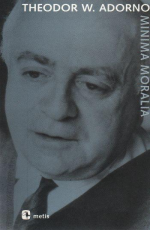

The scope of Adorno's influence stems from the interdisciplinary character of his research and of the Frankfurt School to which he belonged.

Jürgen Habermas, Germany's foremost social philosopher after 1970, was Adorno's student and assistant. In the 1960s he was the most prominent challenger to both Sir Karl Popper's philosophy of science and Martin Heidegger's philosophy of existence. Although less well known among anglophone philosophers than his contemporary Hans-Georg Gadamer, Adorno had even greater influence on scholars and intellectuals in postwar Germany. Theodor Wiesengrund Adorno was one of the most important philosophers and social critics in Germany after World War II.


 0 kommentar(er)
0 kommentar(er)
